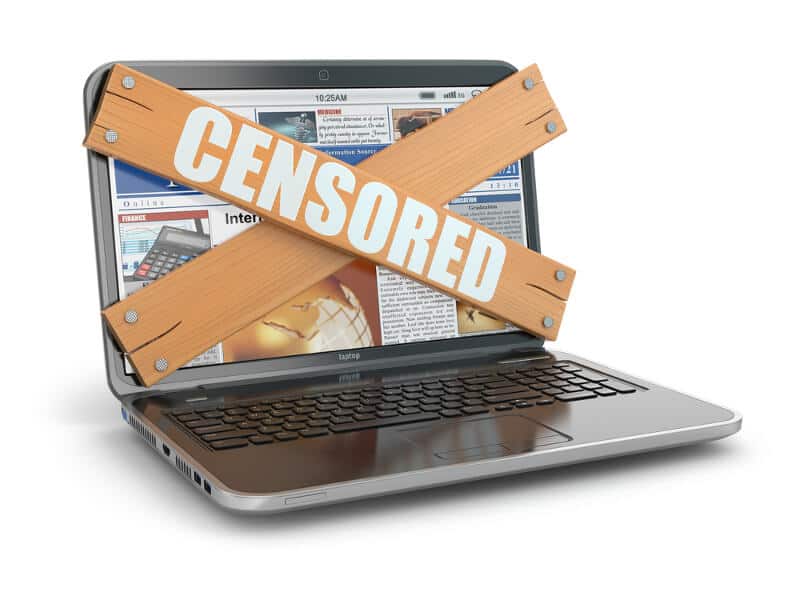What Are the Legal Implications of Health Censorship?In recent years, the intersection of health and censorship has become a topic of intense debate. From the spread of misinformation regarding vaccines to the regulation of health-related content on social media platforms, the legal implications of health censorship have far-reaching consequences for public health, individual rights, and governmental authority. Health information is an essential aspect of society, empowering individuals to make informed decisions about their well-being.
Understanding the legal ramifications of health censorship requires an exploration of various factors, including government regulations, social media policies, and the role of healthcare institutions in controlling the flow of information. In this article, we will delve into the legal implications of health censorship, examining its potential impact on public health, individual freedoms, and the legal system as a whole.

The Rise of Health Censorship
Social media platforms, blogs, and forums have made it easier than ever for individuals to access health information, but they have also opened the floodgates to misleading or inaccurate content. Misinformation about vaccines, alternative treatments, and lifestyle choices has posed serious challenges to public health authorities worldwide.
As a result, governments and regulatory bodies have taken steps to limit the spread of harmful or misleading health information. Platforms like Facebook, Twitter, and YouTube have implemented stricter content moderation policies to combat the spread of misinformation related to health. However, these measures have raised concerns about the potential for overreach and the suppression of legitimate health discussions.
Government Regulation and Health Censorship
Government regulation of health information often falls under the broader framework of public health law. However, the regulation of health information must also account for constitutional protections, such as the First Amendment in the United States, which guarantees freedom of speech.
The legal implications of health censorship become evident when governments seek to regulate or control the dissemination of health-related information. For instance, during the COVID-19 pandemic, many governments issued public health orders to limit the spread of misinformation about the virus, vaccines, and treatments.In some countries, the government’s role in health censorship is more explicit, with laws mandating the removal or regulation of certain types of health content. For example, some countries have passed laws criminalizing the spread of “false information” related to health. These laws often give governments the power to censor content and impose penalties on individuals or organizations that spread misinformation. However, the legal implications of health censorship in these cases are complex, as they must navigate the tension between protecting public health and upholding individual freedoms.
Private Sector Censorship and Social Media
In the digital age, much of the responsibility for regulating health information has shifted to private companies, particularly social media platforms. Social media companies have increasingly adopted policies to combat the spread of health misinformation, particularly around sensitive topics such as vaccines, COVID-19, and mental health.
The legal implications of health censorship in the private sector are multifaceted. On one hand, social media platforms are private entities that have the right to establish their own policies and moderate content as they see fit. These companies often argue that their content moderation policies are necessary to protect users from harmful misinformation that could jeopardize public health. On the other hand, the scale and influence of these platforms give them a significant role in shaping public discourse, raising concerns about their power to censor information.
One of the key issues with private sector censorship is the lack of transparency and accountability in the content moderation process. Social media companies have faced criticism for inconsistently enforcing their policies, leading to accusations of bias, political influence, and arbitrary decision-making. The legal implications of health censorship in this context involve questions about fairness, due process, and the potential for censorship to disproportionately affect certain groups or ideas.
The Role of Healthcare Institutions
Healthcare institutions, including hospitals, clinics, and professional organizations, also play a role in the regulation and dissemination of health information. These institutions often provide trusted sources of health guidance and research, but they may also have their own policies regarding what constitutes “acceptable” health information.
The legal implications of health censorship in healthcare institutions are significant. Healthcare providers must navigate the complex intersection of patient autonomy, professional standards, and regulatory requirements. For example, if a healthcare institution were to censor a patient’s access to alternative treatment options, could this be seen as a violation of the patient’s right to make informed decisions about their own health? Similarly, if a healthcare provider were to restrict access to certain research or clinical trials, would this constitute an infringement on scientific freedom?
The Impact on Public Health
The legal implications of health censorship are not limited to questions of individual rights and freedoms; they also have significant consequences for public health. On one hand, limiting the spread of health misinformation can help protect individuals and communities from harm. For example, the promotion of false or misleading information about vaccines can contribute to vaccine hesitancy, undermining efforts to achieve herd immunity and prevent the spread of infectious diseases.
On the other hand, overly restrictive censorship of health information can stifle public debate, limit access to important medical advancements, and hinder the exchange of diverse ideas. Public health relies on the free flow of information to foster scientific inquiry, innovation, and collaboration. If health censorship becomes too pervasive, it could limit the ability of researchers, healthcare providers, and the public to discuss new ideas and evaluate emerging evidence.
The balance between protecting public health and preserving the free exchange of ideas is one of the central challenges of health censorship. Governments, healthcare institutions, and private companies must carefully consider the potential consequences of censorship policies on public health, taking into account the need for accurate information, open discourse, and individual rights.
Free Speech vs. Public Health
One of the most contentious aspects of the legal implications of health censorship is the tension between free speech and public health. Freedom of speech is a cornerstone of democratic societies, and any attempt to restrict it raises significant concerns about individual liberties. At the same time, public health authorities have a duty to protect the well-being of citizens, and sometimes that means regulating the flow of health information to prevent harm.
The question of where to draw the line between free speech and public health protection is not easily answered. In some cases, censoring harmful health misinformation may be justified to prevent harm, particularly in the context of public health crises like pandemics or outbreaks of infectious diseases. However, in other cases, limiting speech may undermine the right of individuals to access information, form their own opinions, and engage in informed decision-making.
As health censorship continues to evolve in the digital age, the legal implications of health censorship will undoubtedly continue to be debated in courts, legislatures, and public forums. Courts will need to determine the extent to which government regulations, private sector policies, and healthcare institutions can restrict health-related speech without violating constitutional protections. As technology advances and new health challenges arise, the legal landscape surrounding health censorship will continue to shift.
Conclusion
The legal implications of health censorship are complex and multifaceted, involving a delicate balance between protecting public health and safeguarding individual freedoms. As health misinformation continues to proliferate in the digital age, governments, healthcare institutions, and private companies must work together to find solutions that promote accurate health information while respecting the fundamental rights of individuals.
Ultimately, the goal of health censorship should be to protect the public from harm while fostering a free and open exchange of ideas. This balance is essential to ensuring that health information remains accessible, accurate, and trustworthy, empowering individuals to make informed decisions about their well-being.
As we move forward, it is critical to engage in ongoing discussions about the legal implications of health censorship, considering the evolving landscape of technology, public health, and free speech. Only by carefully navigating these issues can we ensure that health information is both safe and freely accessible to all.







